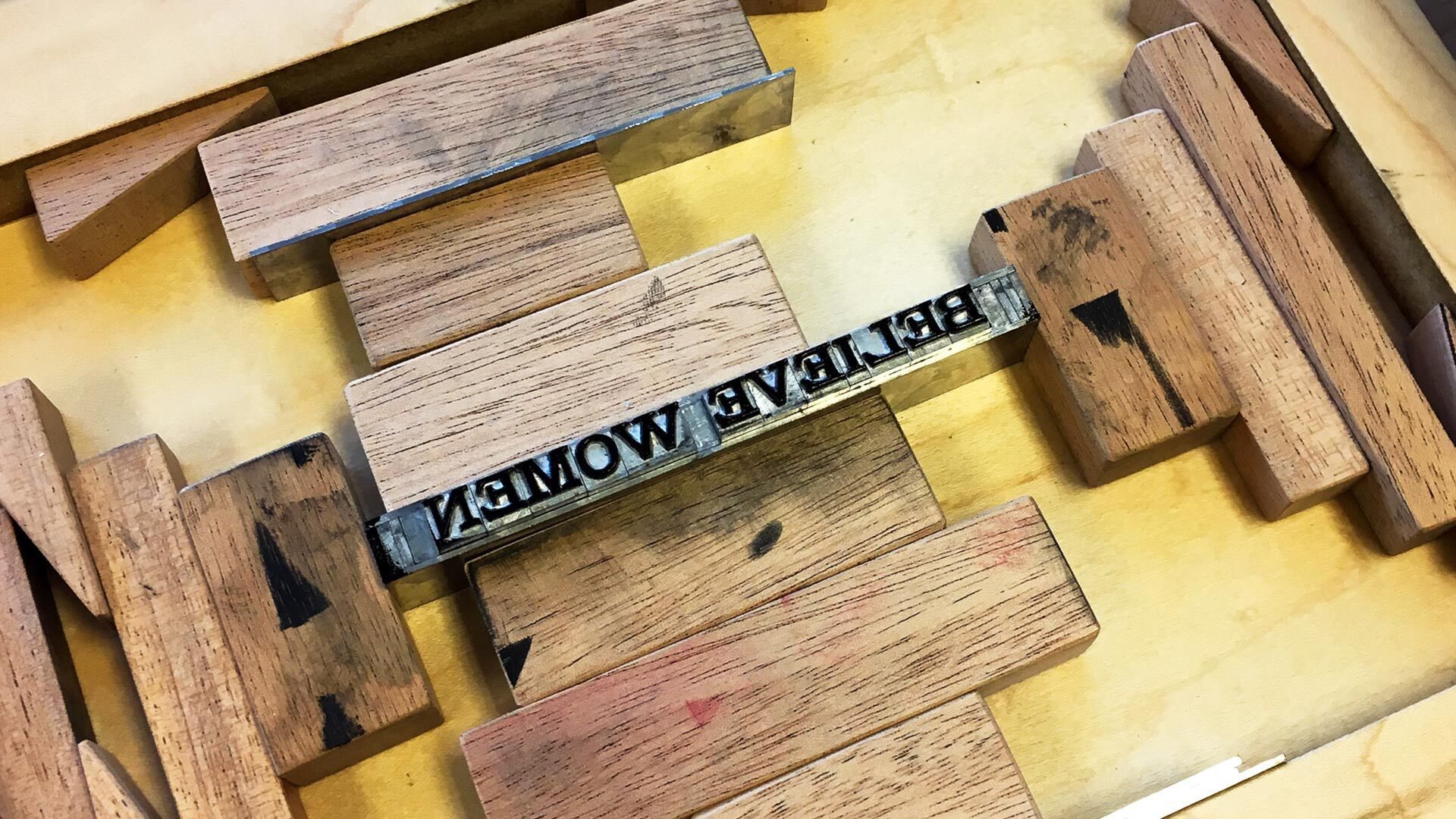- December 05, 2018
- By Christiana Littrell ’19
Huddled around a large table in Tawes Hall, a group of ink-stained experimenters assemble tiny, metal letters on an old-school letterpress. One page at a time, they’re meticulously creating their own prints, and reviving an art some might think is dead in the age of the Kindle: bookmaking.
This is BookLab, a new interactive space dedicated to the study of the book as a physical object. A printing press, a reference collection of books about books and an inventory of circuits, sensors, inks and more help visitors learn about the creation of books, past, present and future—from early manuscripts written on animal skin to interactive texts made with electrical circuits. Eventually, the lab, opened by the Department of English, aims to provide resources for graduate students to create their own “chapbooks,” or prose-filled paper booklets.
Users can dabble in a variety of techniques, including using sensors and circuitry to turn books into high-tech, interactive works of art. One such book, “The Pussycat Said to the Owl,” by Clifford Hichar M.A. ’13, embeds electricity and lighting in the book to light up illustrations and make them more dynamic.
Matthew Kirschenbaum, professor of English and co-facilitator of BookLab along with Associate Professor Kari Kraus, hopes BookLab’s collection of “weird, experimental” texts made with everything from letterpresses to computer programs “can be examples for the kinds of creative things people can do with the physical format of the book.”
True to its name, BookLab hopes to combine science and the arts. “BookLab brings programming into a humanities context in a meaningful way,” said Kraus. “Students are not doing accounting problems with a computer—they are seeing how the computer relates directly to the objects that are central to the study of literature—books themselves.”
Kirschenbaum estimates that upwards of 150 students have come through BookLab since its opening at the start of the semester, learning how to use the printing press and set type. “The space is about expanding the idea of what the English department itself does,” said Kraus.
“I love the open-mindedness and sense of play in this space,” said Britt Starr, a Ph.D. student in English. “Experiencing the physical process of printing while learning about the history of that process has been fascinating and fun.”
BookLab, 3248 Tawes Hall, has public hours Mondays through Thursdays. Follow it on Twitter and Instagram at @umd_booklab, or contact Kirschenbaum and Kraus at booklab@umd.edu.
Topics
Arts & Culture